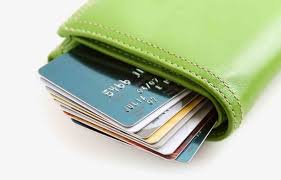No, we’re not joking. In fairness, there aren’t many of us who’d use a credit card to buy a car outright – who among us has the kind of credit limit that would allow us to buy anything else than a €500 jalopy? Not many, but that’s not the point.
What we’re talking about here is consumer protection, and not using a credit card to fund the purchase of an entire car, but just a small portion of the price, usually between €100 and €10,000.
Why? Simply because, in certain circumstances, it can give you some extra consumer rights leverage in case things go horribly wrong.
Now, this is advice that is slightly more beneficial to those who are shopping in the UK market for a personal import, simply because laws governing the insurance cover automatically applied to a product purchased with a credit card are rather tighter than they are here in Ireland. Quel surprise…
UK car buying
 In the UK, such purchases are governed by what’s called Section 75 of the Consumer Credit Act and basically what’s being covered by the credit card is the possibility that the dealer will go out of business between you ordering the car and you getting the car. Not an everyday occurrence but it does happen. By putting even a tiny proportion of the overall sale price on your credit card, you are invoking the Section 75 rule and bringing the credit card company in on the deal. If, for any reason, the car you have ordered fails to arrive, or its not the correct model or it’s damaged in some way, you can, theoretically at least, claim a full refund of the price through your credit card company.
In the UK, such purchases are governed by what’s called Section 75 of the Consumer Credit Act and basically what’s being covered by the credit card is the possibility that the dealer will go out of business between you ordering the car and you getting the car. Not an everyday occurrence but it does happen. By putting even a tiny proportion of the overall sale price on your credit card, you are invoking the Section 75 rule and bringing the credit card company in on the deal. If, for any reason, the car you have ordered fails to arrive, or its not the correct model or it’s damaged in some way, you can, theoretically at least, claim a full refund of the price through your credit card company.
Needless to say, this is not an overnight process and you may have to get a solicitor involved, but it does give you some extra ammunition when dealing with a problem with a car. Far too often, both car dealers and car makers assume that they are somehow above or separate to consumer law, and having a third party putting pressure on them for a refund of the price paid can be of immeasurable help.
Car buying in Ireland
 In Ireland, the picture is a little more cloudy (isn’t it always) but there are still useful mechanisms at work. While we don’t have the UK’s automatic cover on all purchases, there is still a thing called Chargeback. Chargeback is a voluntary system entered into by credit card providers in Ireland which means that refunds can be claimed for goods that either don’t arrive or that arrive damaged. If a car dealer should cease trading, for instance, between order and delivery, the full amount can be recovered because the chargeback goes through the bank, not the business.
In Ireland, the picture is a little more cloudy (isn’t it always) but there are still useful mechanisms at work. While we don’t have the UK’s automatic cover on all purchases, there is still a thing called Chargeback. Chargeback is a voluntary system entered into by credit card providers in Ireland which means that refunds can be claimed for goods that either don’t arrive or that arrive damaged. If a car dealer should cease trading, for instance, between order and delivery, the full amount can be recovered because the chargeback goes through the bank, not the business.
Now, you can raise a chargeback request with your credit card company up to 120 days after the agreed date of delivery, and the retailer has 14 days to contest the case. If they don’t, then the chargeback is automatically paid, although it’s not quite clear in Ireland whether you get the full amount back, or just the amount you paid on the card. Either way, it’s still a bit of extra leverage in the fevered world of consumer protection.
Enforceability
 Now, chargeback is not technically legally enforced by legislation, but it has been used for decades by credit card companies and is an accepted part of the credit system, so you should be on solid legal ground there, albeit not so solid as you’d find in the UK.
Now, chargeback is not technically legally enforced by legislation, but it has been used for decades by credit card companies and is an accepted part of the credit system, so you should be on solid legal ground there, albeit not so solid as you’d find in the UK.
Of course, it won’t cover things such as mechanical faults that develop after delivery or anything like that, but in this world of sharp practices, you need to be covering your every purchase from every angle, and this oft-forgotten piece of consumer protection could be a life saver should the worst case scenario play out.